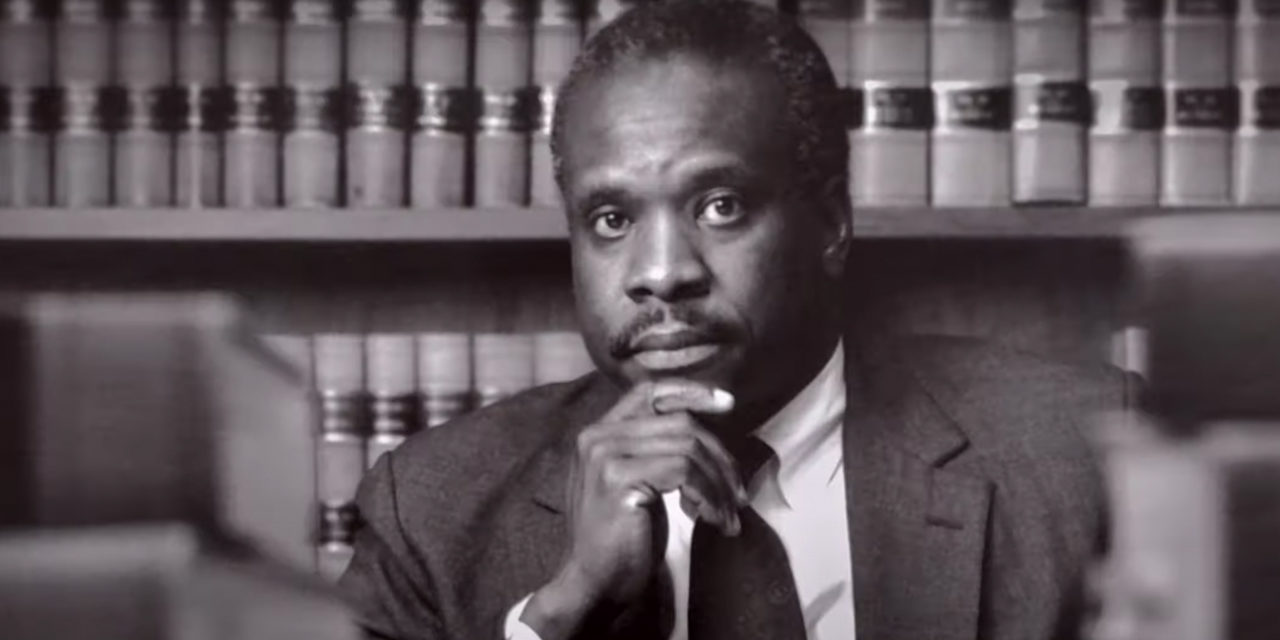I will confess right off the bat that I am a huge fan of United States Supreme Court Associate Justice Clarence Thomas. If you’re a fan of justices who interpret the Constitution as it was originally understood rather than creating new laws from the bench, then Thomas is your guy. That’s why I could not pass up the opportunity to catch the Michael Pack documentary, “Created Equal: Clarence Thomas in His Own Words,” which aired on PBS on May 18.
The justice, who is approaching his 72nd birthday in June, is no stranger to anyone who has read his autobiography, “My Grandfather’s Son: a Memoir,” published in 2008. However, the documentary, which consists of Thomas and his wife Virginia telling the story of his life, interspersed with compelling video and photos from his life, including from his contentious 1991 confirmation hearings before the U.S. Senate Judiciary Committee, makes for a worthwhile viewing experience.
Thomas, who replaced Justice Thurgood Marshall as only the second African American justice to serve on the Supreme Court, grew up in extreme poverty in the segregated South. He was, along with his brother, raised by his grandparents during his early years, studied for the Catholic priesthood at one point, and turned into a rage-filled young college student in the late 1960s attracted to black activists such as Stokely Carmichael, H. Rap Brown, Angela Davis and others.
After one particularly violent student demonstration, where his own anger and rage frightened him, he prayed, asking God to deliver him from his inner turmoil. It was the beginning of his transformation. He went to Yale Law school, got a job working for the Attorney General of Missouri, John Danforth, and eventually followed him to Washington, D.C. when Danforth was elected to the Senate. That led to opportunities in the Reagan Administration working for the U.S. Department of Education and ultimately the Equal Employment Opportunity Commission, where he was appointed Chairman in 1982.
In 1990, Thomas was nominated as a federal judge for the D.C. Circuit Court of Appeals by President George H.W. Bush, who then in 1991 tagged him to replace the retiring Marshall on the Supreme Court.
At that point, Thomas was subjected to one of the most contentious confirmation hearings of all time, with perhaps the sad exception of the 2018 hearings for Justice Brett Kavanaugh. Thomas, a black conservative, was anathema to liberals who considered him an “Uncle Tom” on issues of affirmative action and abortion. Even the NAACP, the well-known civil rights organization, opposed his nomination. The Left campaigned relentlessly against him. And anyone who witnessed the last-minute accusations of sexual harassment by law professor Anita Hill and the high drama of the second round of Thomas’ confirmation hearings will always remember his famous accusation of the committee hearings as a “high-tech lynching.”
Liberals still hate that Thomas is on the high court, and regularly condemn him and even call for his impeachment. Thomas, who has written over 600 opinions during his tenure on the bench, says he doesn’t like it, but he’s gotten used to it all.
This documentary is Justice Thomas’ turn to tell his story, in his own way. Even if you don’t like the justice’s jurisprudence, you will find the story of his life prior to joining the Supreme Court fascinating. How does a black man, raised in the segregated South and who became a 1960’s radical, end up as one of the most conservative jurists the Supreme Court has ever had?
You will understand by the end of the story. And you will also come to appreciate the justice’s faith journey – along with his wife’s – that played a major role in shaping who he is today.
You can watch the trailer for the movie here.
Photo from YouTube






